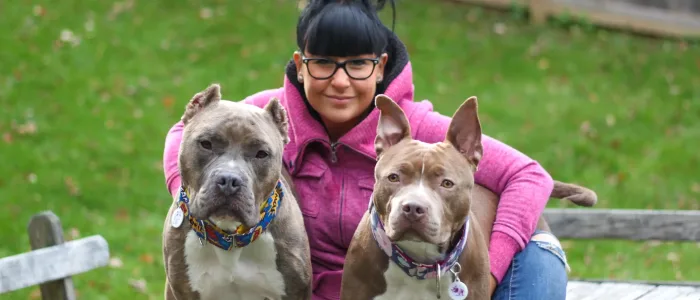

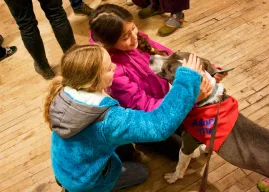
Before adopters even step through your doors, commit to sending clear, positive messages to your community about all of the dogs in your care.
Does your organization currently have restrictions, procedures, or policies in place that only apply to “pit bull” dogs? Do you speak differently about or single out your “pit bull” dogs? If so, you’re sending a message to the public that “pit bull” dogs are different than the other dogs in your shelter.
This kind of messaging contributes to the stereotypes that we all know aren’t true. When we do this, we end up with longer stays and fewer adoptions for dogs labeled “pit bull.”
As animal welfare professionals, it’s vital that we view every dog as an individual and communicate this message to the public by removing policies influenced by stereotypes or fear.
Remember that you are the experts on animals in your community. The public takes what you say as fact. This is a good thing, but it also means that we have a responsibility to be thoughtful about the language we choose to use.
Before speaking to the public, whether it’s in the shelter lobby, with our colleagues, on the set of your local TV news, or on social media, evaluate your language and messaging carefully.
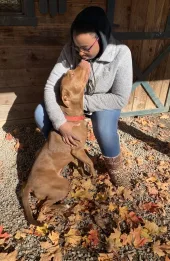
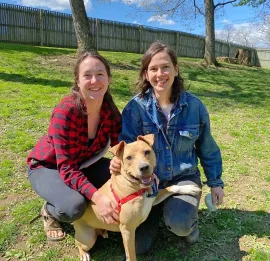
They tell the public that “pit bull” dogs are different and need specialized care. This scares away potential adopters. Blanket policies fail to recognize a dog’s individual needs. We cannot make assumptions about how a dog will behave in the future, based on how they look or how they’ve been labeled.
We were all first time dog owners at one time. Don’t deny an adoption just because an adopter hasn’t previously owned a dog. Help them to find the right first dog for them, “pit bull” dog or otherwise
Steer clear of requirements like “breed experience necessary” for adopters. We know that the way a dog is labeled or how they look tells us little about their behavior.
Alert adopters to the fact that pet policies and requirements may exist and trust them to take it from there. Instead of putting adoptions on hold for restrictions, provide your adopters with resources for renting with a pet.
Ageism is the stereotyping, prejudice, and discrimination against people due to their age. It’s a violation of civil rights and directs harm to older adults. It also increases the length of stay for the dogs in your care when you refuse adoptions based on age.
-Kristen Auerbach discusses shelter life prior to removing barriers at Fairfax County Animal Shelter
All dogs are individuals who deserve a chance to shine. As animal welfare professionals, it is important to communicate this message to the public by removing policies influenced by stereotypes, personal bias, or fear.
These policies create barriers to adoptions and keep dogs and people apart. Learn how to create successful adoptions that recognize that all dogs and adopters are individuals with the help of our resources for shelters and rescues.
Want to learn more about how to accurately identify the dogs in your care, as well as the importance of removing breed labels? Click below to visit our “Removing Breed Labels” resource page.
Start by approaching potential adopters with respect and an open mind. Put adopters at ease by giving them your full attention and treating them with dignity, so they feel comfortable sharing with you. Avoid making assumptions about an adopter’s suitability before you learn more about them.
Get to know adopters through the use of open ended questions and friendly conversation. Be aware of how your word choices may offend or alienate them. The goal is to learn about their lifestyle, so that you can match them with a suitable pet.
Find out more on how to create successful adoption policies and procedures for your shelter dogs by visiting our Increasing Dog Adoptions toolkit.
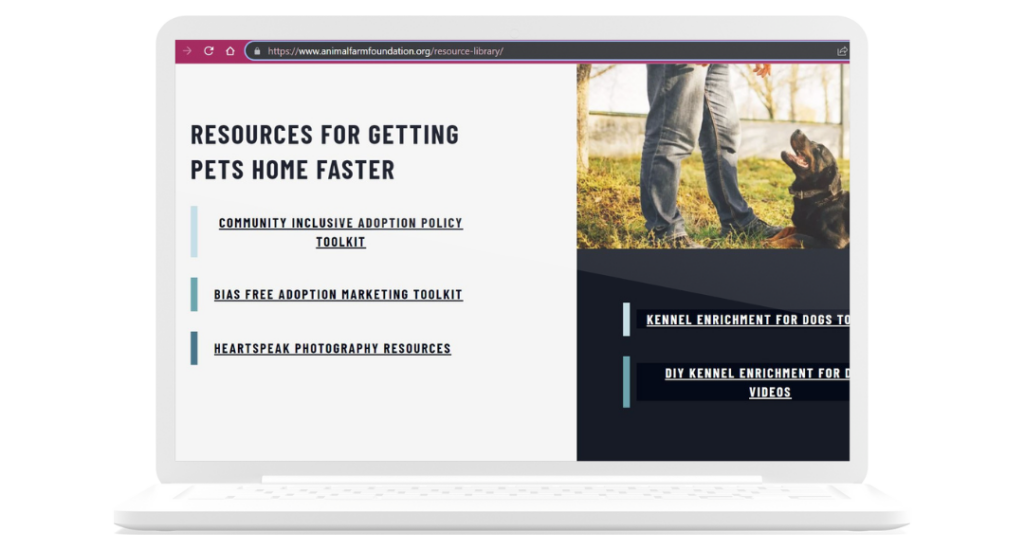
Animal Farm Foundation (AFF) is a 501(c)3 nonprofit organization built on the principle that all dogs are individuals. Our Foundation relies on science-based information about animal behavior and public policy, including breed-specific legislation and housing insurance discrimination, derived from our subsidiary National Canine Research Council. AFF’s team offers regional and national initiatives that support dogs and the people who care for them in their communities.
NYS Department of Agriculture and Markets Shelter/Rescue Registration: RR286